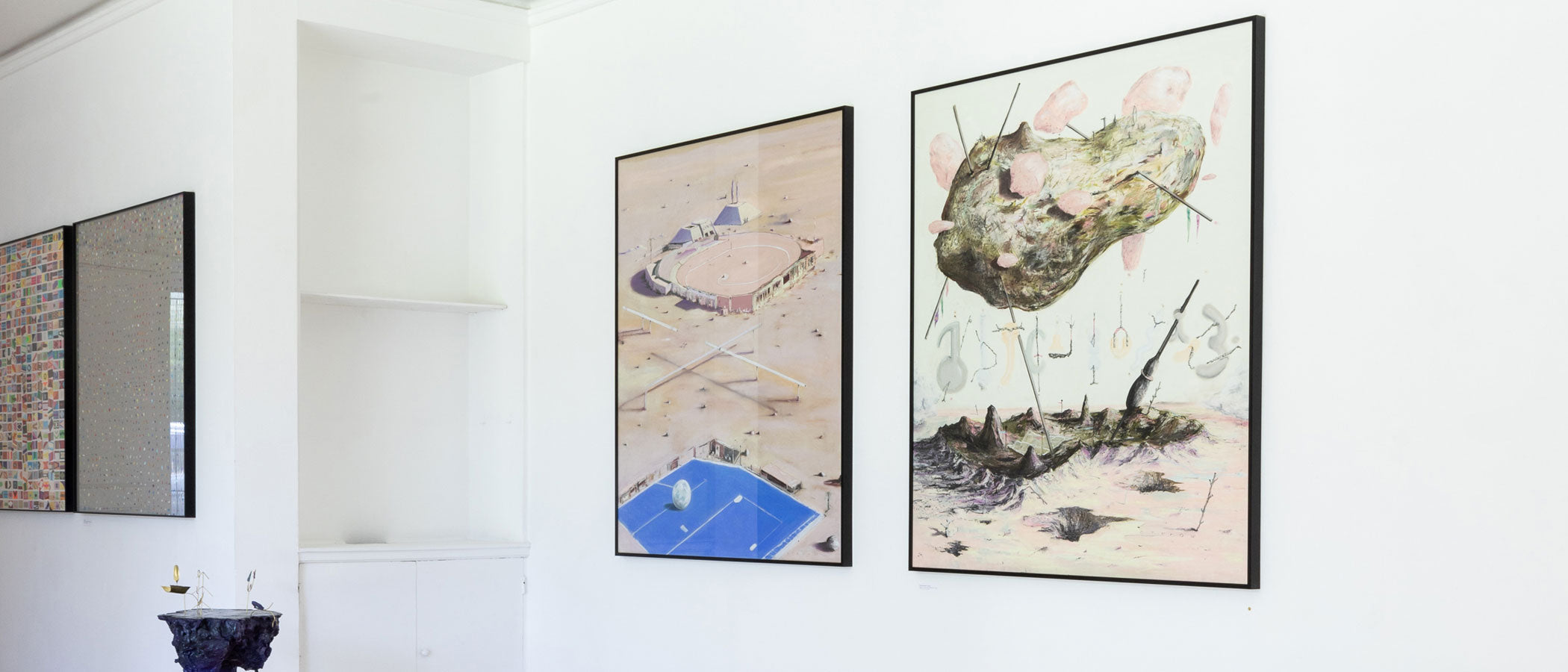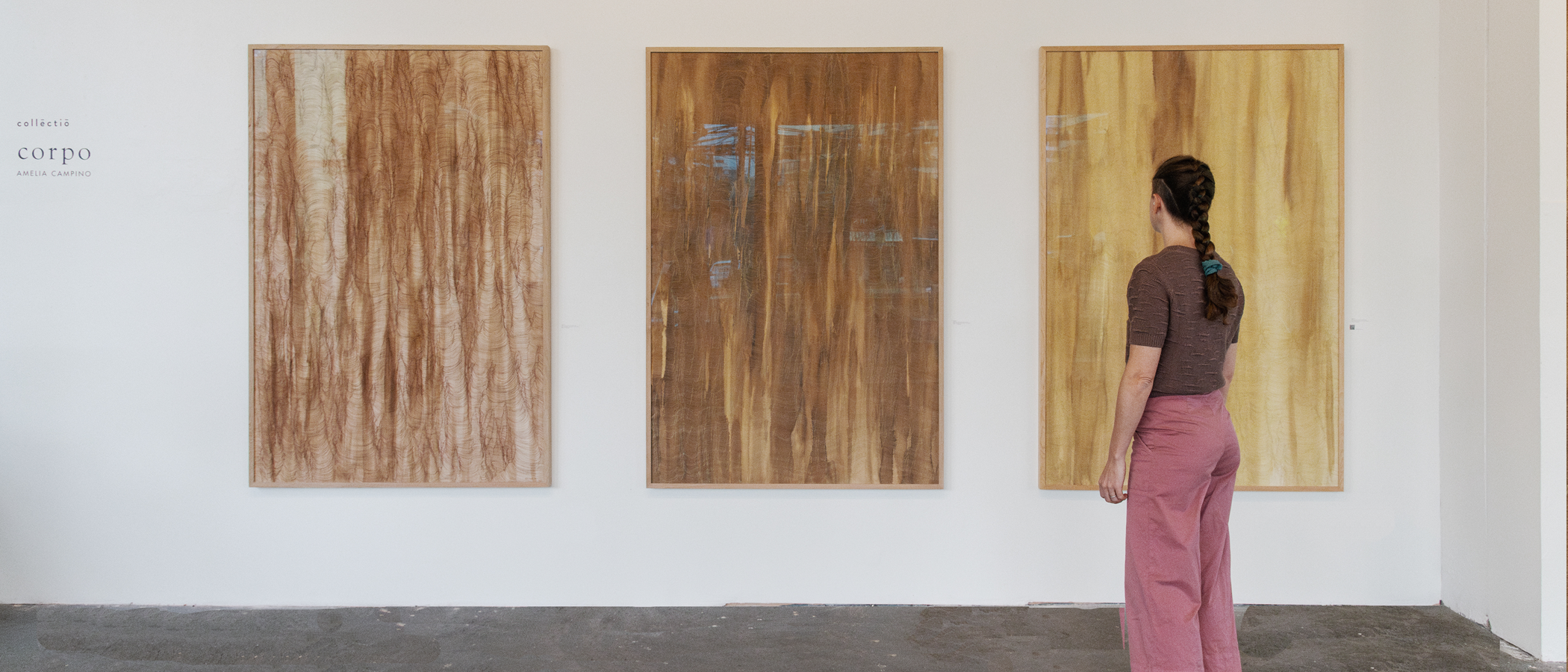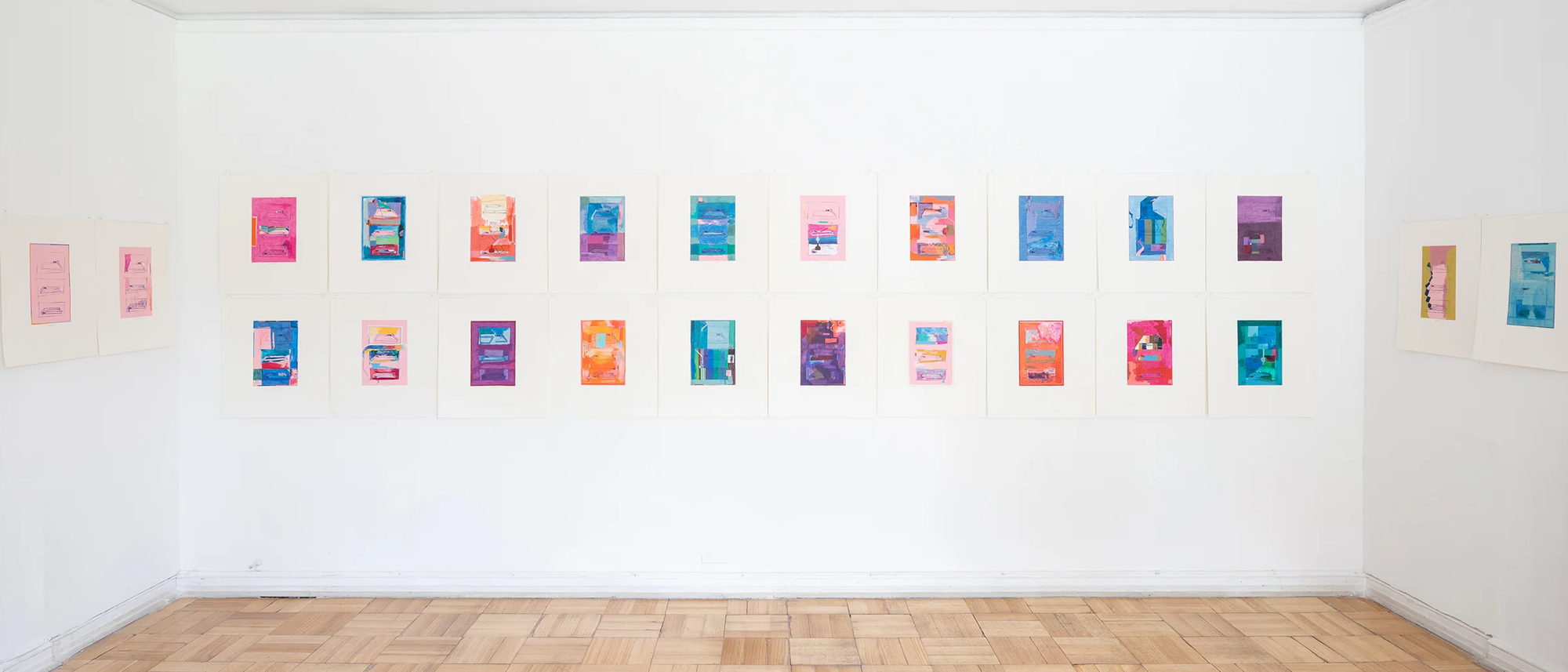
Javier Otero Trusses
"Tijerales" Javier Otero
Download catalogue here
The contemporary desires of eccentric millionaires and space companies to inhabit other planets have triggered the race for exploration and expansion throughout the solar system. Tijerales arises from the artist's concern to think about and, in turn, visualize fictitious scenarios regarding the possibility of occupying extra-planetary territories. If this were to happen, what would be the cosmic myth of the foundation of this new place? What will the arrival strategies be like? Will the same vicious terrestrials remain? On these planets to be discovered, Javier Otero proposes that there would be various forms of play [1] - sports that would generate the organization of these societies of the future. A Popol Vuh of space.
Tijerales takes as its starting point the book Por los senderos del infinito , written by Carlos Otero Valdés, lawyer, mystic, astrologer and great-grandfather of the artist, where he narrates an astral journey through the solar system. He declares, “just as men build houses to live in, the Supreme Artificer creates the Worlds to be inhabited.” These spiritual dream worlds narrated by his great-grandfather dialogue with the real possibilities of exploring these planets, the potential of science fiction and the artist’s own imagination. In this way, the exhibition tests spaces, moments and forms of production of hybrid spaces, between the old and the new, in the future.
From there, in the game and in the sport, the other also appears. The institutions and the forms of order and control, the stadiums [2] , the boards, the fans [3] , the flags, the hooligans [4] , the castes, the banners, the debts [1] , the scoreboards, the cheating, the bad practices [2] , the strategies, the party, the carnival.
[1] According to Johan Huizinga in Homo Ludens, play is “a free action or occupation that takes place within certain temporal and spatial limits, according to absolutely obligatory, though freely accepted, rules, an action that has its end in itself and is accompanied by a feeling of tension and joy and the awareness of “being otherwise” in everyday life” (1938). In accordance with this conceptual approach, that is, understanding play as a free activity, separate from reality, uncertain, unproductive, regulated and fictitious, Roger Caillois in Games and Men (1997) adds categories of classification and distinction: Paida, improvised and fun activities; and Ludus, more complex and difficult activities that require ingenuity, skill, dexterity and patience. Agon (competition), Alea (luck), Mimicry (simulation), Ilinx (vertigo). // Are there temporal and spatial limits in play that separate the course of playful life from real life? If I lose, do I lose only in the space-time game? Is luck just luck? What about virtual games? Are they less real because they are less physical?
[2] The Movistar Arena was silent, a euphoric cry “I love you Roger and your fucking mother.”
[3] Paraphrasing Eduardo Galeano in Futbol a Sol y Sombra (1995), I think and write. Once a week the fan flees (...) the city disappears... the ruin is forgotten. Swallow saliva, swallow poison. (...) In the cement stands, here and there, some bonfires of fleeting fire burn. Afterwards, silence.
[4] A fan at the Madrigal throws a banana to Dani Alves (an emblematic Brazilian in Guardiola's Barcelona FC). On the 22nd he picks it up and eats it. // Tylor Swift can fill the River Plate stadium 36 times.
[5] I remember my ten-year-old cousin crying when he declared bankruptcy while playing Monopoly.
[6] Martina Weil after receiving her gold medal from her mother, declares “the advantages of having a mother as vice president… people should try it.” We all know that yes, she won. But we also know the problems of nepotism in this country.
Wednesday - Thursday - Friday: 11:00 - 19:00 hrs
Saturdays: 12:00 - 14:00 hrs
Until January 12th.
Eduardo Marquina 3992, Vitacura.


